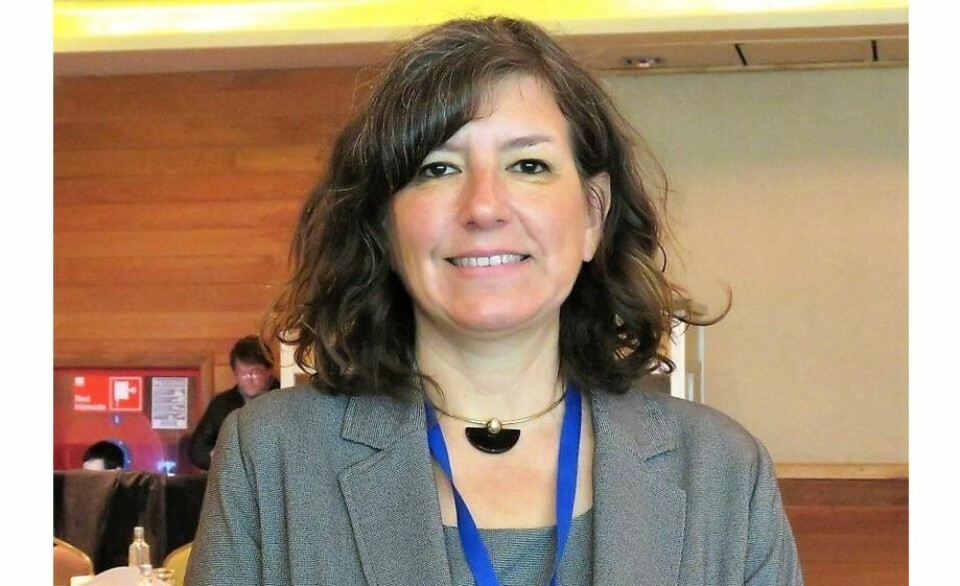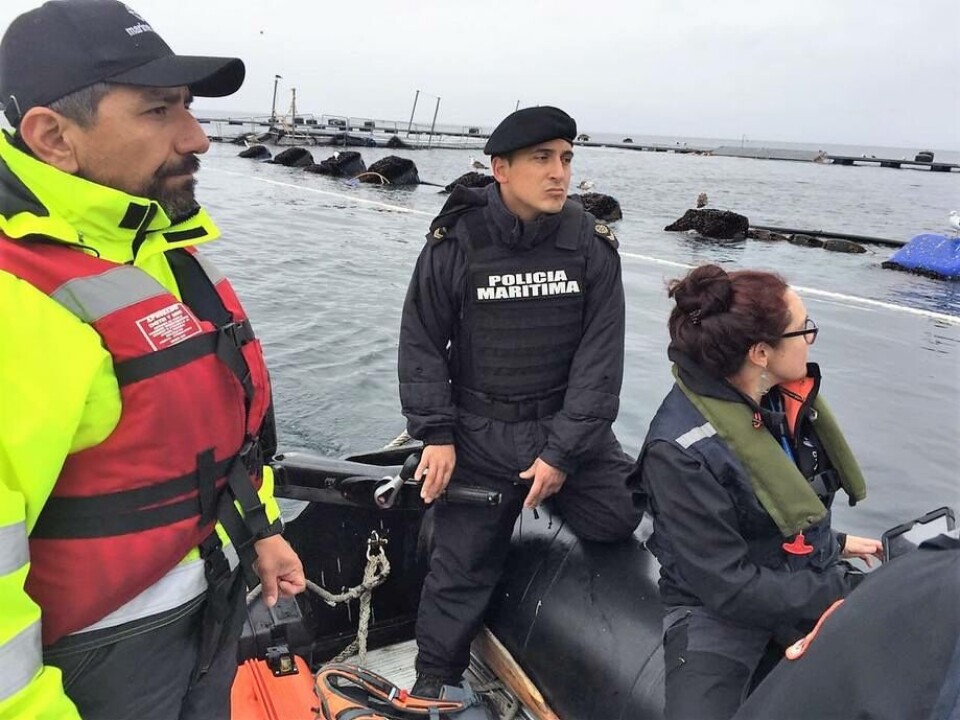
Chilean salmon farming under spotlight after fish escape
Alicia Gallardo, the director of Chile’s National Fisheries and Aquaculture Service, Sernapesca, has said the country’s entire salmon farming sector is now under the spotlight following the escape of 690,000 fish from a Marine Harvest farm on July 5.

Sernapesca has filed a complaint against Marine Harvest Chile for possible breaches of maintenance and security rules at the Punta Redonda farm in the Los Lagos region. Five cages in one module were completely destroyed and four cages in a second module were badly damaged during winter storms that lasted several days.
The complaint was filed with Chile’s environment agency, the SMA.
Gallardo told fishfarmingexpert.com’s Chilean sister site, salmonexpert.cl, said that after analysing the data collected immediately after and in the days following the farm collapse “we estimate that there is sufficient background to assume breaches in the maintenance and control of the security measures of the collapsed infrastructure in the centre (farm) of Punta Redonda , which will have to be ratified by the investigation carried out by the SMA”.
‘Exceptional situations’
Asked whether she regarded the escape as an isolated event, or one that could occur in farms run by other companies, Gallardo said: “Given the production volumes associated with the salmon farming industry, we can say that fish escapes constitute exceptional situations.
“Of course, the objective is to reduce to the maximum the probability of occurrence of this type of contingencies and that is why, for example, we modify the Environmental Aquaculture Regulation to increase the demands in the action plans of the culture centres.
“We also created the statuses of ‘pre-alert’ and ‘aquaculture warning’ to adopt early measures against natural phenomena, situations derived from human action or a combination of both that may affect one or more culture centres, which may generate massive mortalities, fish escapes, detachment of cultivation structures, among others.”
Asked if the Marine Harvest escape had led Sernapesca to investigate the entire industry, she said: “Sernapesca is always within a process of continuous improvement with respect to its internal management and control strategies, for which reason it is currently working in conjunction with the different institutions belonging to the State administration in order to verify, with rigour, the compliance of the safety conditions of the structures of culture centres in order to avoid the escape of fish and in those cases where this happens, the administration’s efforts to cope with this type of contingency situations are coordinated.”
The SMA has applied for a court order to impose a number of measures on Marine Harvest and the Punta Redonda farm.
These include:
- The temporary closure of the farm until it meets the safety conditions appropriate to the geographical and oceanographic characteristics of the site.
- That the company presents a periodic program of reconnaissance overflights to rule out mortalities in the area surrounding the escape area.
- That the company fixes a plan of final disposition in case of mortalities found.
- That the company establishes a recapture program with geographic information on fish movements and mapping of the points where recapture occurs, indicating the progress status weekly.
In a press release, MH Chile expressed its strong will to comply in a comprehensive manner and in the shortest time with all the measures suggested by the SMA, indicating that several of the measures have already been adopted proactively and voluntarily by the company, as soon as the farm damage occurred.






















































